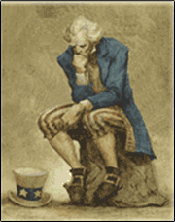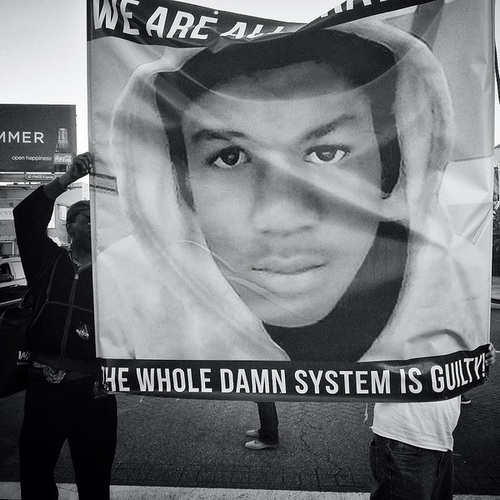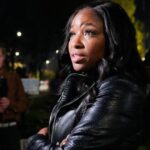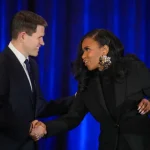
–>
March 7, 2023
The rhetoric and uproar over the beating death of Trye Nichols by five Black police officers in Memphis, Tennessee, demonstrates how badly the “conversation” over race has deteriorated. One would think that a crime involving Blacks killing another Black would lack a racial angle to exploit. Alas, in today’s race-obsessed universe that is never the case. Unable to help themselves, our nation’s top racialists, beginning with President Joe Biden, weighed in on the controversy hurling the standard epithets of “systemic racism” and “White supremacy.” The media, and others, were happy to join in.
‘); googletag.cmd.push(function () { googletag.display(‘div-gpt-ad-1609268089992-0’); }); }
With the Brown v. Board of Education decision in 1954 ending “separate but equal,” the Civil Rights legislation of the sixties, affirmative action, and “Great Society,” with its trillions of dollars of wealth transfers to Blacks, one might have considered that, nearly sixty years later, the nation would mend and race relations improve.
Indeed, the emergence of Barack Obama and his ascension to the Presidency in 2008 suggested that that moment had arrived. The event should have been an inflection point in America’s racial history. Many thought it was. How else to explain a White majority nation electing a Black President, other than that America had turned the corner? Alas, Obama was not one to placate the nation. Rather than use the opportunity of his rise to the White House as the crowning achievement of a long treacherous journey to racial reconciliation, he chose instead to agitate and polarize the nation further. His presidency should have represented the fulfillment of the great dream of Lincoln, King, and of our Declaration of Independence, but became instead the basis of an ever-widening racial gap that may never be bridged.
Of his many racial stunts, perhaps the worst moment occurred during the Trayvon Martin affair. After the shooting death of the young Black, Obama famously stated that “If I had a son, he’d look like Trayvon.” The statement was provocative. Rather than pacify the nation, he inflamed it. He seemed to dismiss his White mother and the White grandparents who raised him. He, thus, injected his own biases into the controversy. As in so many other instances, rather than seek a peaceful resolution, he roiled the nation further.
‘); googletag.cmd.push(function () { googletag.display(‘div-gpt-ad-1609270365559-0’); }); }
The Trayvon Martin episode (like so many others) had, indeed, unleashed the furies emanating from the dark underside of racial politics and grievance in America; and it was not a pretty sight. It revolved around a simple narrative that had become the essence of a vast and elaborate racial industry that had grown and metastasized through the decades.
The narrative was as plain as it was destructive: it was that America was racist to the core, institutionally and categorically, and no matter what progress the nation made, no matter the multitude of unparalleled triumphs Blacks enjoyed, the stain and moral culpability would never be erased.
It did not matter that Blacks occupied the highest echelons of American wealth, power, and influence in the country, even the Presidency, the attorney general’s office, the halls of Congress, governors’ mansions, city halls, in the media, the academy, Hollywood, the music and entertainment world, sports, business, fashion, medicine, and law.
Nor did it matter that a vast complex of diversity programs, appointments, set asides, quotas, contracts, gerrymandered districts, anti-discrimination laws, voting rights, and wealth transfers have been instituted on behalf of Blacks, or that extensive bureaucracies and organizations have been brought into existence to protect and cater to the needs of Blacks.
Nor did it matter that Blacks, Black achievement, and Black culture were embraced, that Blacks received extensive preferential treatment and subsidies, or that a substantial political/media broadside was triggered for virtually any perceived racial slight or slur to defend Black sensitivities.
Nor did it matter that the United States was bar none the single greatest place in the world for a young Black to live and grow.
‘); googletag.cmd.push(function () { googletag.display(‘div-gpt-ad-1609268078422-0’); }); } if (publir_show_ads) { document.write(“
 The narrative would not go away, for Obama and the race industry would not allow it; they had too much to lose, too much lucre and power to forfeit; it existed to ensure that the race catechism was never forgotten, and brandished as a sharp sword at a moment’s notice.
The narrative would not go away, for Obama and the race industry would not allow it; they had too much to lose, too much lucre and power to forfeit; it existed to ensure that the race catechism was never forgotten, and brandished as a sharp sword at a moment’s notice.
George Zimmerman was only the latest foil at the time (and many since). The episodes of prior racial industry clampdowns were well known. Bernie Goetz, Crown Heights, Tawana Brawley, Jena 6, Henry Louis Gates, Duke-Lacrosse, and then Zimmerman, all saw the race industry in full attack mode, unleashing the power of its divisions, the integrated machinery of media, politicians, unions, activists, hucksters, protesters, administrators, academicians, lawyers, civil rights groups, bureaucracies and organizations unwinding themselves on the national stage, targeting victims, wrecking lives, and reinforcing the crucial race narrative upon which their careers and livelihoods depended.
The guilt or innocence of the protagonists hardly mattered. No one knew if Zimmerman committed a crime. But that was immaterial. Zimmerman’s offense was not legal but political.
If the man who pulled the trigger had been named Sanchez or had been a Black, it would have been a non-story, having failed the race template, no different than the thousands of Blacks killed every year by other Blacks that go unreported.
That he was Hispanic disturbed the tidy narrative of White racism and placed dueling liberal pieties at odds; and so a new ethnicity was discovered: the “White Hispanic.”
But the Hispanic dimension is troubling for the race crowd. It needs to look hard into the future for the demographics are not favorable. Hispanic Americans, when their numbers are great enough, will discard the temporary alliance they may have with Blacks and will not be patient with Black demands and Black victimhood. Having had nothing to do with slavery and being members of an “oppressed minority” themselves, there will be no pool of White guilt from which to extract wealth transfers or preferential treatment of any kind.
Indeed, the window for Blacks is closing quickly and the future is grim. Instead of seeking liberty, accomplishment, and full integration into American society, they have followed the admonitions of the race industry into a ghetto of cultural breakdown, unemployment, criminality, and poverty, to their own deepening detriment. They have accepted liberalism’s nostrums for Black dysfunction, embraced liberalism’s assumptions of their inability to compete and requirement for ever-expanding government largesse; they have been mined by the race industry for votes and money; furthermore, they have learned to resent bitterly their country, the “White patriarchy,” and to believe that the cards were stacked against them. They have been led into a house of poverty and despair.
One would be hard pressed to devise a more disabling ideology than this.
And the man who did more to perpetuate and exacerbate their dysfunction and misery while deepening the division of the nation, was none other than the one who could have actually ended it — had the first Black President been a different man. Had he been a Thomas Sowell, an Allen West, or Ben Carson, or even the liberal Colin Powell, a patriot who loved his country and recognized the significance of a Black man winning the American Presidency. But, no, that man was not a patriot. He was instead a community organizing, race-baiting, anti-American, cult-Marxist agitator. He was Barack Hussein Obama, who presided over the greatest lost opportunity in American history.
Dr. Moss is a practicing Ear Nose and Throat Surgeon, candidate for Congress in 2016 and 2018, author, columnist, local investor, and small businessman, residing in Jasper, IN. He has written A Surgeon’s Odyssey and Matilda’s Triumph, available on amazon.com. Find more of his essays at richardmossmd.com. Visit Richard Moss, M.D. on Facebook, Twitter, Parler, Gettr, GAB, TruthSocial, and Instagram.
Image: Ryan Vaarsi
<!– if(page_width_onload <= 479) { document.write("
“); googletag.cmd.push(function() { googletag.display(‘div-gpt-ad-1345489840937-4’); }); } –> If you experience technical problems, please write to [email protected]
FOLLOW US ON
<!–
–>
<!– _qoptions={ qacct:”p-9bKF-NgTuSFM6″ }; ![]() –> <!—-> <!– var addthis_share = { email_template: “new_template” } –>
–> <!—-> <!– var addthis_share = { email_template: “new_template” } –>






